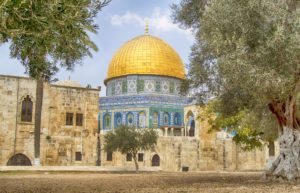Thuwayba nursed the prophet (ﷺ) for a few days and the Prophet (ﷺ) always remembered her throughout his life in Makkah. He lived in Makkah through the age of 53. As long as he was in Makkah, he always looked after her and treated her with gifts and did whatever he could. Even after migrating to Madinah, he would send gifts to her. Finally, when he went and conquered Makkah, he asked for her. The people said, “She has passed away.” The Prophet (ﷺ) asked, “What about her son, Masrooh?” They said, “He has passed away as well.” He asked, “Do they have any family members? Anyone that they left behind that I can look after?” They said, “No relatives.” Then, after a few days of Thuwayba nursing the Prophet (ﷺ), there was a tradition in the Arabs especially in the noble families amongst the Quraysh that they would send their children out into the rural areas for the first years of their lives. Why was this? So they could have access to fresh air, good quality of water, and another thing they were particular about was the language. They wanted their children to speak the most eloquent and clear language with the perfect accent, as was expected from those types of noble families. The best place for this to happen was in those rural areas.
So, the Prophet (ﷺ)’s mother, Aminah, was looking to send him for some time, but there was a problem; people would come from Banu Sa’ad into Makkah every year and take children for the sake of nursing and would bring them back to Banu Sa’ad where the air and water quality was very good and who would speak very eloquent language. So, this year, the tribe of Banu Sa’ad came with a family who was extremely poor, and that year in Banu Sa’ad, there was a severe drought, so there was not much pasture there, their animals were starving and without much milk, so they lived off of the meat and milk of goats and their animals. For them, it was a very tough year. With them, there was a family of a wife, husband and newborn son. They, too, came. Now, this family seemed to be worse off than the others because even their animals were so weak and tired that they would delay their whole caravans, and the people of the caravan would poke and beat their camel trying to get it to move faster, and the camel would not give milk either. So, they had neither food nor money, and their transport was exhausted, tired and weak. They were starving most of the time. The newborn baby that they had was also constantly crying out of hunger because it had no milk because the mother was not nourished enough.
